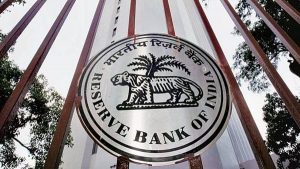Domestic Systemically Important Banks (D-SIBs):

Reserve Bank of India has released its list of Domestic Systemically Important Banks (D-SIBs) in 2021.
- It has identified the state-owned lender State Bank Of India and the private lenders ICICI Bank and HDFC Bank as systemically important banks, which are perceived as banks, ‘too big to fail’.
- The system of D-SIBs was adopted in the aftermath of the 2008 financial crisis where the collapse of many systematically important banks across various regions further fueled the financial downturn.
- D-SIBs are important for the country’s economy. In events of distress, the government supports such banks and if such a bank fails, it would lead to disruption of the country’s overall economy.
- RBI finalizes such banks after considering factors like size, complexity, lack of substitutability and interconnectedness of the banks, state reports.
- Since 2015, the RBI has been releasing the list of all D-SIBs. They are classified into five buckets, according to their importance to the national economy.
- In order to be listed as a D-SIB, a bank needs to have assets that exceed 2 percent of the national GDP. The banks are then further classified on the level of their importance across the five buckets.
- Due to their economic and national importance, the banks need to maintain a higher share of risk-weighted assets as tier-I equity. SBI, since it is placed in bucket three of D-SIBs, has to maintain Additional Common Equity Tier 1 (CET1) at 0.60 percent of its Risk-Weighted Assets (RWAs).




